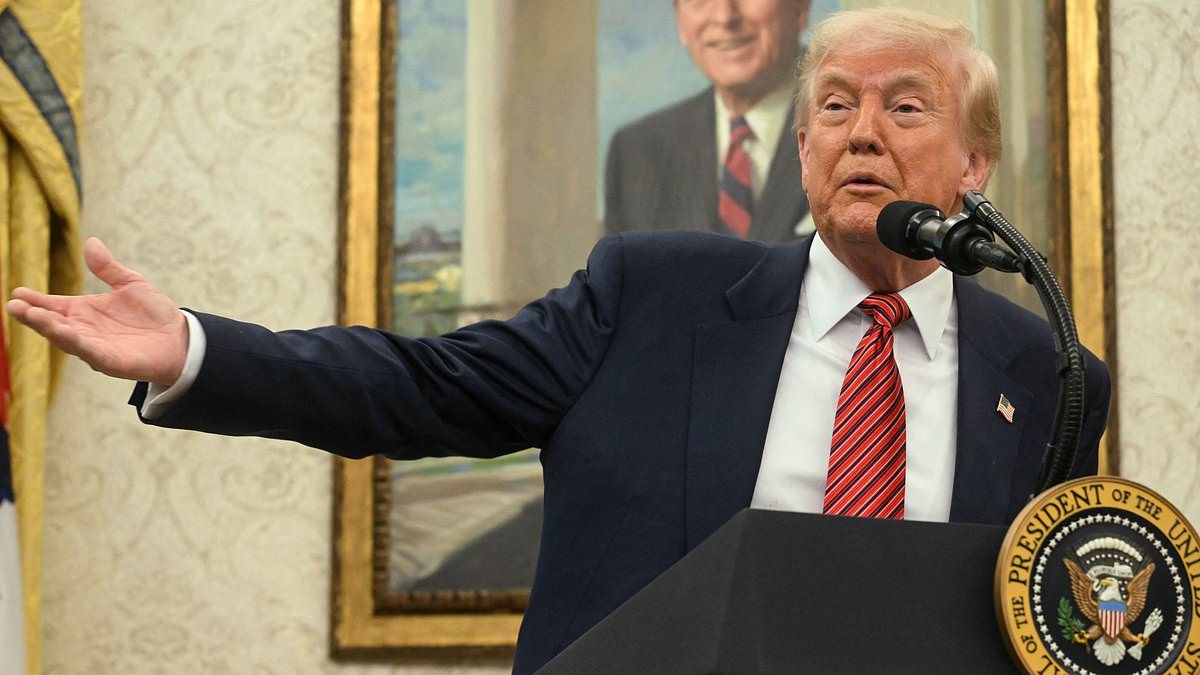President Trump has issued his most detailed comments on Kashmir after India struck inside Pakistan following terrorist attacks that killed 25 Hindu tourists in the disputed territory.
‘It’s so terrible. My position is I get along with both … and I want to see them work it out,’ Trump told reporters while swearing in the new U.S. ambassador to China David Perdue.
‘I want to see them stop,’ said Trump in the Oval Office.
‘They’ve gone tit for tat, so hopefully they can stop now,’ Trump said.
Trump also offered himself up as a potential mediator.
‘If I can do anything to help I will be there,’ he said.
That stance was a departure from earlier comments Trump seemed to keep his distance from the long-simmering conflict. ‘I am very close to India and I’m very close to Pakistan, and they’ve had that fight for a thousand years in Kashmir,’ he told reporters aboard Air Force One this weekend.
He repeated his comment about 1,000 years, adding ‘probably longer than that.’
The territorial clash began after the partition of India in 1947. Each country now administers separate parts of Kashmir, but both countries claim the entire territory as their own.
India fired missiles into Pakistan and part of Kashmir controlled by Pakistan Wednesday, raising further fears of an expanding conflict.
India then told a group of envoys that ‘if Pakistan responds, India will respond.’
The situation has raised concerns of an escalating clash between the two nuclear powers.
Pakistan has vowed to hit back, saying it would do so at a ‘time, place and manner of its choosing’.
On Tuesday, Trump gave his first reaction to hearing about the escalating military actions.
‘It’s a shame. We just heard about it,’ he told reporters. ‘They’ve been fighting for a long time … I just hope it ends very quickly.’
That came after India struck at what it said were ‘terrorist camps’ and Pakistan claimed to have shot down five Indian fighter jets.
The Indian government did not confirm those claims, which could not immediately be confirmed.
India said it had struck camps housing Lashkar-e-Tayyiba and Jaish-e-Mohammad.
